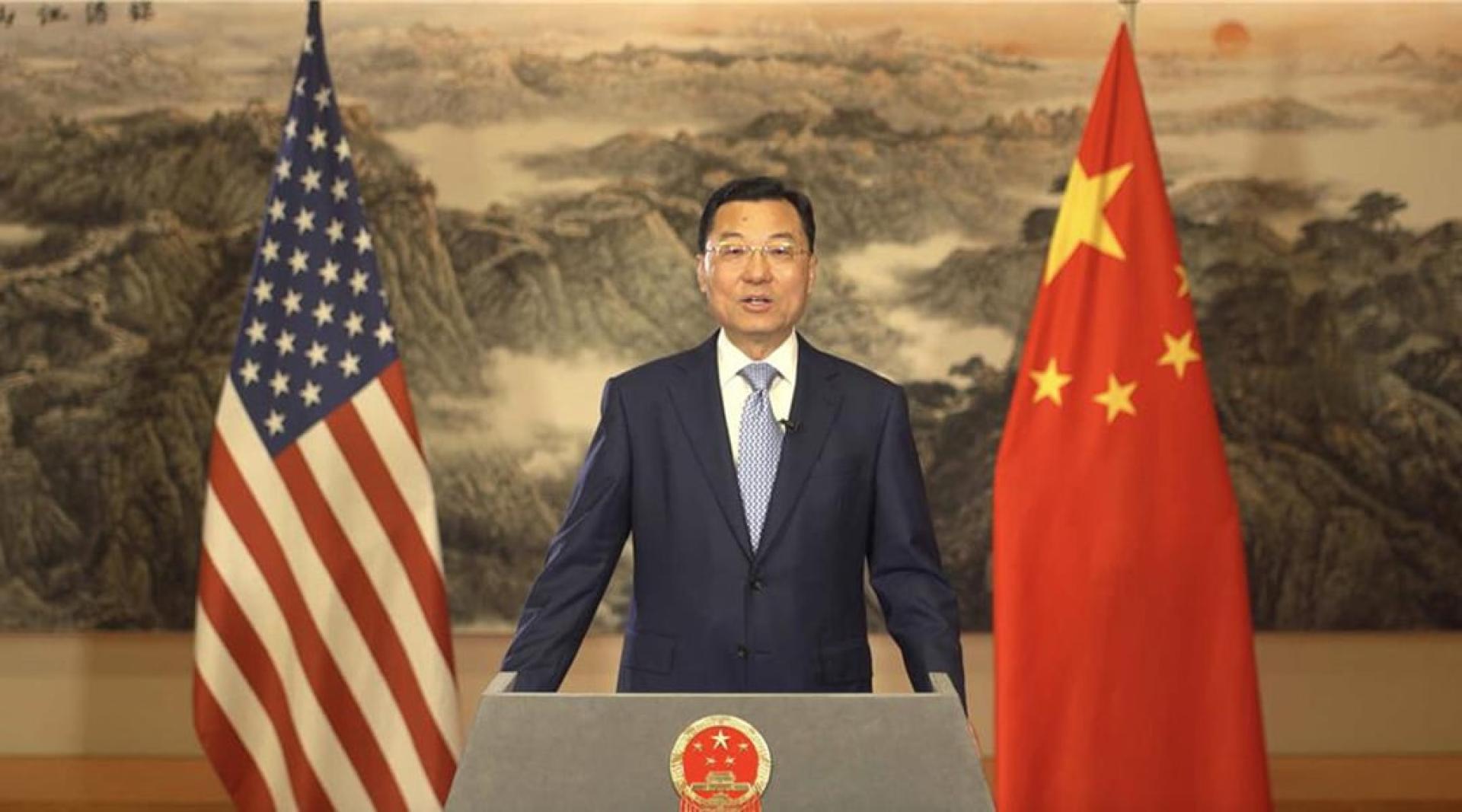Chinese Ambassador to the United States Xie Feng said that Taiwan, democracy and human rights, governance system, and development rights are four red lines for mainland China, and hopes that the U.S. will not stir up trouble or cross the line.
According to the website of the Chinese Embassy in the United States on the 4th, Xie Feng delivered a speech at the Exchange Dinner of the US-China Business Council's 2025 Annual China Operations Conference. Xie said that Chinese President Xi Jinping and U.S. President Trump had a successful meeting in Busan, once again charting the course for China-U.S. relations at a critical moment.
Xie stated that over the past nine-plus months, China-U.S. relations have experienced ups and downs, bringing important lessons. First of all, the strategic leadership of the two heads of state is the anchor of stability. Since the beginning of this year, Xi Jinping and Trump have spoken three times and exchanged multiple letters, each time steering China-U.S. relations at key junctures. We must fully implement the important consensus reached by the two leaders to ensure the China-U.S. giant ship sails smoothly on the right course.
Xie said, secondly, mutual respect, peaceful coexistence, and win-win cooperation are the right path. In today's globalized world, countries are interconnected and interdependent, and common interests between China and the U.S. far outweigh their differences. China and the U.S. cannot afford not to engage, and trying to change each other is unrealistic; the consequences of conflict and confrontation are unbearable for both sides. Seeing each other as partners means problems can be solved; taking each other as rivals creates new problems even when none exist. We must keep the bigger picture in mind, take a long-term view, and explore a new way for China-U.S. relations in the new era.
Xie stated that third, non-conflict and non-confrontation is a bottom line that must be upheld. China and the U.S. will inevitably have differences and occasional friction, but the key is to respect each other's core interests and major concerns.
Xie emphasized that Taiwan, democracy and human rights, governance system, and the right to development are mainland China's four red lines, and he hopes the U.S. will not stir up trouble or cross the line. He said, 'Dialogue is better than confrontation, cooperation is better than zero-sum, and stability is better than turbulence. “Tariff wars, trade wars, industrial capacity wars, and technology wars—all are dead ends.”'
Xie also said that the current urgent task is to implement in detail the consensus from the China-U.S. leaders' meeting and the Kuala Lumpur economic and trade consultation joint arrangements, and, with practical actions and results, instill confidence in the China-U.S. and world economy. We must not say one thing and do another, nor create new complications, and must not play a zero-sum game or harbor harmful intentions that hurt others for one's own benefit.
Xie also said that the steady progress of the 'giant ship' of China-U.S. relations not only bears the well-being of the over 1.7 billion people of the two countries, but also concerns the interests of more than 8 billion people worldwide. He described the U.S. business community as being both 'passengers' and 'crew'.
To ensure arrival at the win-win destination, Xie put forward three hopes for the U.S. business community: First, be 'early birds' and seize historical opportunities; second, be 'propellers' and help advance bilateral relations; third, act as 'catalysts' to promote friendly exchanges.
Xie stated that a healthy, stable, and sustainable China-U.S. relationship is more precious than gold, and safeguarding China-U.S. relations is safeguarding the interests of enterprises themselves. 'I hope everyone takes initiative and transforms the commercial logic of win-win cooperation into a constructive force to improve bilateral relations.'
